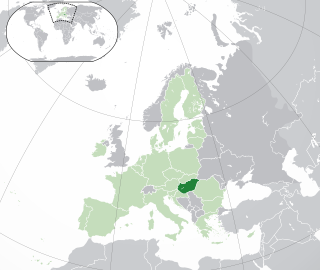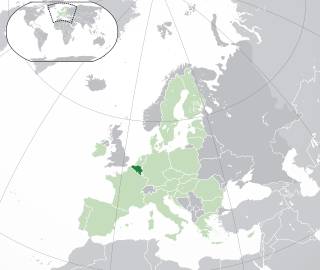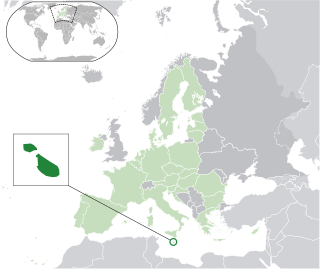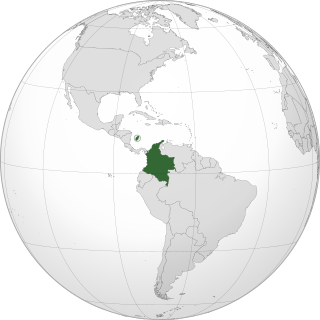This is a list of notable events in the history of LGBT rights that took place in the year 2002.
This is a list of notable events in the history of LGBT rights that took place in the year 2005.

Lesbian, gay, bisexual, and transgender (LGBTQ) people in Hungary face legal and social challenges not experienced by non-LGBT residents. Homosexuality is legal in Hungary for both men and women. Discrimination on the basis of sexual orientation and sex is banned in the country. However, households headed by same-sex couples are not eligible for all of the same legal rights available to heterosexual married couples. Registered partnership for same-sex couples was legalised in 2009, but same-sex marriage remains banned. The Hungarian government has passed legislation that restricts the civil rights of LGBT Hungarians – such as ending legal recognition of transgender Hungarians and banning LGBT content and displays for minors. This trend continues under the Fidesz government of Viktor Orbán. In June 2021, Hungary passed an anti-LGBT law on banning "homosexual and transexual propaganda" effective since 1 July. The law has been condemned by seventeen member states of the European Union. In July 2020, the European Commission started legal action against Hungary and Poland for violations of fundamental rights of LGBTQI people, stating: "Europe will never allow parts of our society to be stigmatized."

Lesbian, gay, bisexual, and transgender (LGBT) rights in Germany rank among the highest in the world; having evolved significantly over the course of the last decades. During the 1920s and the early 1930s, lesbian and gay people in Berlin were generally tolerated by society and many bars and clubs specifically pertaining to gay men were opened. Although same-sex sexual activity between men was already made illegal under Paragraph 175 by the German Empire in 1871, Nazi Germany extended these laws during World War II, which resulted in the persecution and deaths of thousands of homosexual citizens. The Nazi extensions were repealed in 1960 and same-sex sexual activity between men was decriminalized in both East and West Germany in 1968 and 1969, respectively.

Lesbian, gay, bisexual, and transgender (LGBT) people in South Africa have the same legal rights as non-LGBT people. South Africa has a complex and diverse history regarding the human rights of LGBTQ people. The legal and social status of between 400,000 to over 2 million lesbian, gay, bisexual, transgender and intersex South Africans has been influenced by a combination of traditional South African morals, colonialism, and the lingering effects of apartheid and the human rights movement that contributed to its abolition.

New Zealand lesbian, gay, bisexual, and transgender (LGBT) rights are some of the most extensive in the world. The protection of LGBT rights is advanced, relative to other countries in Oceania, and among the most liberal in the world, with the country being the first in the region to legalise same-sex marriage.

Lesbian, gay, bisexual, transgender and queer (LGBTQ) rights in Australia rank among the highest in the world; having significantly advanced over the latter half of the 20th century and early 21st century. Opinion polls and the Australian Marriage Law Postal Survey indicate widespread popular support for same-sex marriage within the nation. Australia in 2018, in fact was the last of the Five Eyes set of countries - that consisted of namely Canada (2005), New Zealand (2013), United Kingdom (2014) and the United States (2015) to legalize same-sex marriage. A 2013 Pew Research poll found that 79% of Australians agreed that homosexuality should be accepted by society, making it the fifth-most supportive country surveyed in the world. With its long history of LGBTQ activism and annual Gay and Lesbian Mardi Gras festival, Sydney has been named one of the most gay-friendly cities in the world.

Lesbian, gay, bisexual, and transgender (LGBT) rights in Belgium are regarded as some of the most progressive in Europe and the world. In 2023, ILGA-Europe ranked Belgium as second in the European Union for LGBT rights protection, behind Malta. In 2024, ILGA-Europe ranked Belgium the third highest after Malta and Iceland.
Same-sex marriage has been legal in Austria since 1 January 2019. On 4 December 2017, the Constitutional Court ruled that the non-discrimination and equality provisions of the Constitution of Austria guarantee same-sex couples the right to marry. The decision took effect on 1 January 2019, making Austria the 24th country in the world and the fifteenth in Europe to allow same-sex couples to marry nationwide. Polling indicates that a majority of Austrians support the legal recognition of same-sex marriage.

Lesbian, gay, bisexual, and transgender (LGBTQ) rights in Latvia have expanded substantially in recent years, although LGBT people still face various challenges not experienced by non-LGBT residents. Both male and female types of same-sex sexual activity are legal in Latvia, but households headed by same-sex couples are ineligible for the same legal protections available to opposite-sex couples. Since May 2022, same-sex couples have been recognized as "family" by the Administrative District Court, which gives them some of the legal protections available to married (opposite-sex) couples; as of 2023 November, around 40 couples have been registered via this procedure. In November 2023 registered partnerships were codified into law. These partnerships are available to both same and different sex couples - since July 1, 2024 the implemented registered partnership law has the similar rights and obligations as married couples - with the exception of the title of marriage, and adoption or inheritance rights.

Lesbian, gay, bisexual, and transgender (LGBT) people in Luxembourg have the same legal rights as non-LGBT people. Partnerships, which grant many of the benefits of marriage, have been recognised since 2004. In June 2014, the Luxembourgish Parliament passed a law enabling same-sex marriage and adoption rights, which took effect on 1 January 2015. Additionally, discrimination on the basis of sexual orientation and "change of sex" in employment, healthcare and the provision of goods and services is outlawed, and transgender people are allowed to change their legal gender on the basis of self-determination.

Lesbian, gay, bisexual, and transgender (LGBT) rights in Malta rank among the highest in the world. Throughout the late 20th and early 21st centuries, the rights of the LGBTQ community received more awareness and same-sex sexual activity was legalized on 29 January 1973. The prohibition was already dormant by the 1890s.

Lesbian, gay, bisexual, and transgender (LGBT) rights in Slovenia have significantly evolved over time, and are considered among the most advanced of the former communist countries. Slovenia was the first post-communist country to have legalised same-sex marriage, and anti-discrimination laws regarding sexual orientation and gender identity have existed nationwide since 2016.

Lesbian, gay, bisexual, and transgender (LGBT) rights in Switzerland are some of the most progressive by world standards. Social attitudes and the legal situation have liberalised at an increasing pace since the 1940s, in parallel to the situation in Europe and the Western world more generally. Legislation providing for same-sex marriage, same-sex adoption, and IVF access was accepted by 64% of voters in a referendum on 26 September 2021, and entered into force on 1 July 2022.

Lesbian, gay, bisexual, and transgender (LGBT) rights in Colombia have advanced significantly in the 21st century, and are now quite progressive. Consensual same-sex sexual activity in Colombia was decriminalized in 1981. Between February 2007 and April 2008, three rulings of the Constitutional Court granted registered same-sex couples the same pension, social security and property rights as registered heterosexual couples.

Lesbian, gay, bisexual, and transgender (LGBT) rights in Kosovo have improved in recent years, most notably with the adoption of the new Constitution, banning discrimination based on sexual orientation. Kosovo remains one of the few Muslim-majority countries that hold regular pride parades.

LGBT rights in the European Union are protected under the European Union's (EU) treaties and law. Same-sex sexual activity is legal in all EU member states and discrimination in employment has been banned since 2000. However, EU states have different laws when it comes to any greater protection, same-sex civil union, same-sex marriage, and adoption by same-sex couples.
This is a timeline of notable events in the history of lesbian, gay, bisexual and transgender people in South Africa.

The following outline offers an overview and guide to LGBTQ topics:
This is a list of notable events in the history of LGBTQ rights that took place in the year 2015.




















